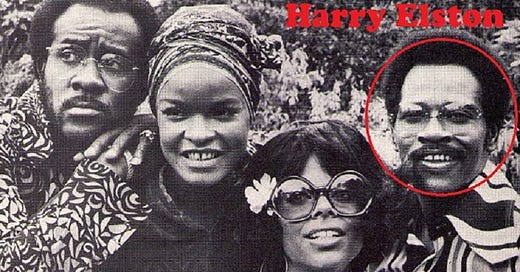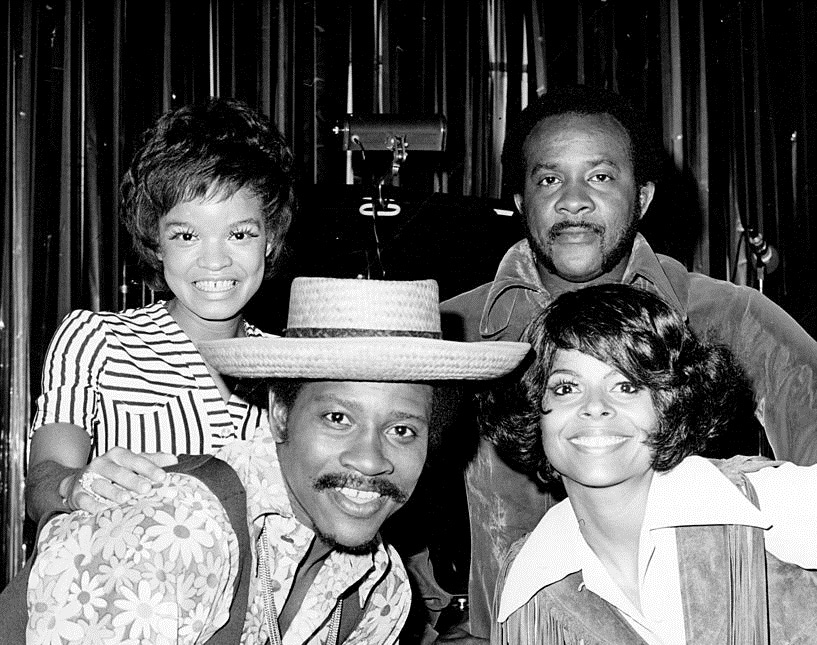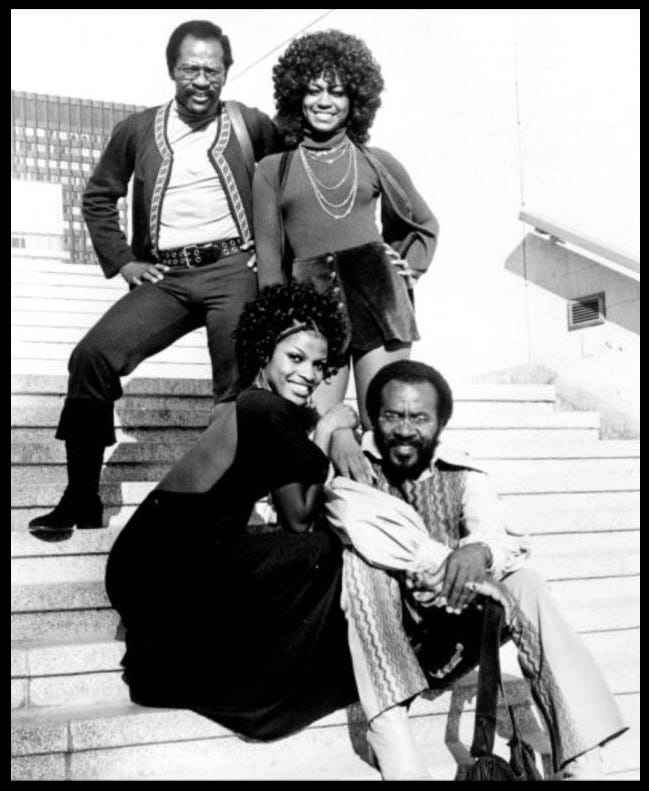Harry Elston (born November 4, 1938) – When A Little Love Began To Die (1975)
The Friends of Distinction founding member co-arranged this beautiful jam off their rare 1975 album Reviviscence: Live to Light Again.
View most updated version of this post on Substack.
Harry Elston is a singer/songwriter and founding member of the Los Angeles-based vocal group the Friends of Distinction, whose first hit “Grazing In The Grass” went gold in 1969.
In the early sixties, Elston and Floyd Butler were ad salesmen for the new Los Angeles fashion magazine Elegant, started by photographer LaMonte McLemore and several other partners. In 1963, McLemore, Elston, Butler, and model/singer Marilyn McCoo formed a vocal quartet called the Hi-Fi’s, and toured with Ray Charles in 1964, who produced a single for them the following year. McLemore and McCoo left the group and later founded the 5th Dimension.
Elston and Butler formed a new group of their own in 1968, the Friends of Distinction (originally called the Distinctive Friends), together with singers Barbara Jean Love and Jessica Cleaves. Elston met pro football player turned actor Jim Brown (who sadly passed last May) through a roommate who knew Brown from Cleveland. Brown began managing the group, and his star power quickly got them signed to RCA Records. Elston sang lead on and wrote the lyrics for their first single “Grazing In the Grass” (1969), a cover of Hugh Masekela’s #1 hit instrumental from May, 1968. It was a hit for them, too, reaching #3 on the Billboard Hot 100 and #5 R&B.
The Friends of Distinction followed it up with another gold single “Going In Circles,” which featured Butler on lead, from their debut LP Grazin’. It hit #3 R&B, although only reaching #15 on the Hot 100. They memorably performed both hits on an episode of The Hollywood Palace later in 1969.
See our earlier posts on original FoD member Barbara Jean Love for more on the group's history and on original Hi-Fi's member LaMonte McLemore for more on the Hi-Fi's.
Love left the group on maternity leave after their first two albums and was replaced by Charlene Gibson. She came back but departed again for good after recording their fourth album Whatever in 1970. After their fifth album Friends & People (1971), Jessica Cleaves also left and joined Earth, Wind & Fire. Cleaves later sang with Parliament/Funkadelic.
For their sixth studio album Love Can Make It Easier (1973), featuring new vocalists Diane Jackson and Dani McCormick, Elston and Butler co-wrote the stellar jam “Thumb Trippin' (I'll Be Movin' On).” It was released as the album’s second advance single in 1972, but neither it nor anything else from the LP charted.
The Friends’ final album was Reviviscence: “Live to Light Again,” released in 1975 and produced by Carl L. Maults aka Carl Maults-By. It again did not chart, was fairly quickly relegated to the cut-out bins, and remained unreleased on CD until 2017. Today, original vinyl copies sell for $75 and up on Discogs. Years later, Elston reflected on why their later albums didn’t do as well as earlier ones, despite their high quality:
“When you are putting out maybe three or four records a year, it has to be planned. RCA didn’t have many Black artists, and they didn’t seem to know what to do with them. You had the R&B department fighting with the pop department, because there was crossover. So we kind of got caught in the middle of that stuff, and it was political. We were lucky Jim Brown was on the scene, and so it wasn’t as bad as it could have been, but it caused confusion.”
One of its highlights was the slow jam “I Don't Wanna Be Late (To Say I Love You),” featuring Butler on lead and written by Maults. Butler and songwriter/producer Jerry Peters co-wrote what was arguably the LP’s masterpiece, the beautiful “When A Little Love Began To Die.” Elston co-arranged the track’s vocals with Butler and Maults, and it was co-produced by Maults, Peters, and producers Jim Shifflett and Keg Johnson.
That same year, the group made a final appearance on one of the superb unknown Blaxploitation soundtracks of the 70s. Honey Baby, Honey Baby was a 1974 independent film starring Calvin Lockhart and Diana Sands, one of the last films she starred in before her tragic early death from pancreatic cancer. Its soundtrack, released on RCA Records in 1975, was mostly written by keyboardist Michael Tschudin (who went on to play with the Canadian disco studio group Black Light Orchestra) and produced by Maults. At the time, Maults worked in A&R for RCA, and he assembled a supergroup of the label’s soul and funk artists for the project.
Besides the Friends of Distinction on vocals, the film’s ultra-funky theme song “Honey Baby Theme” featured legendary keyboardist Weldon Irvine on clavinet and unsung trumpeter Blood Hollins. They also split lead vocals with the talented Zulema Cusseaux on the beautiful “(A Song For Diana) Hey, Hey Star,” written by Maults as a tribute to Sands. The entire soundtrack was on fire.
Happy 85th Birthday to the great Harry Elston.
Further info:
“The Story Behind: The Friends of Distinction, 'Grazing in the Grass',” by Rick Simmons, Rebeat Magazine, 2017.
”Truth In Rhythm 81: Harry Elston Reacquaints Us With The Friends of Distinction,” interview by Scott Goldfine, Funknstuff.net, January 2019.
#soul #funk #FriendsOfDistinction #HarryElston








